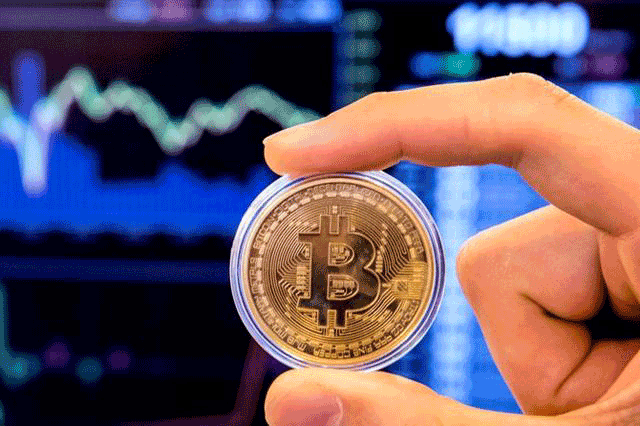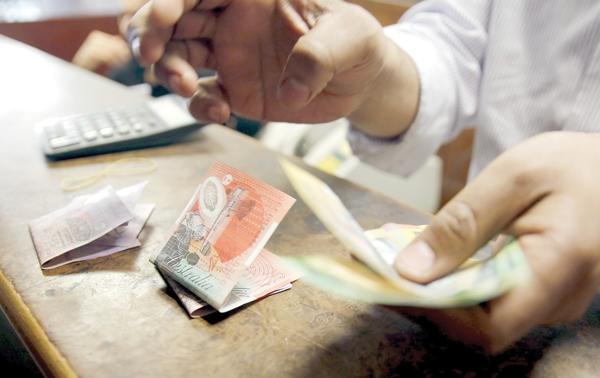You are here
Regulators fine global banks $4.3b in currency investigation
By Reuters - Nov 12,2014 - Last updated at Nov 12,2014

LONDON/ZURICH/NEW YORK — Regulators fined six major banks including Citigroup and UBS a total of $4.3 billion for failing to stop traders from trying to manipulate the foreign exchange market, following a year-long global investigation.
HSBC, Royal Bank of Scotland (RBS), JP Morgan and Bank of America also face penalties resulting from the inquiry that has put the largely unregulated $5 trillion-a-day market on a tighter leash, accelerated the push to automate trading and ensnared the Bank of England.
In the latest scandal to hit the financial services industry, dealers shared confidential information about client orders and coordinated trades to make money from a foreign exchange benchmark used by asset managers and corporate treasurers to value their holdings. Dozens of traders have been fired or suspended.
Dealers used code names to identify clients without naming them and created online chatrooms with pseudonyms such as "the players", "the 3 musketeers" and "1 team, 1 dream" in which to swap information. Those not involved were belittled and traders used obscene language to congratulate themselves on quick profits made from their scams.
Britain's Financial Conduct Authority (FCA) fined five lenders $1.77 billion, the biggest penalty in the history of the City of London, and the US Commodity Futures Trading Commission (CFTC) ordered them to pay a further $1.48 billion.
"Today's record fines mark the gravity of the failings we found and firms need to take responsibility for putting it right," FCA Chief Executive Martin Wheatley said.
"Banks had to understand that responsibility for good business practice went beyond their compliance departments, which are tasked with ensuring internal and external rules are followed.," said Wheatley.
"They must make sure their traders do not game the system to boost profits or leave the ethics of their conduct to compliance to worry about," he added.
The US Office of the Comptroller of the Currency, which regulates banks, also fined the US lenders $950 million and was the only authority to penalise Bank of America.
Switzerland's regulator FINMA ordered UBS, the country's biggest bank, to pay 134 million francs ($139 million) after it found serious misconduct in both foreign exchange and precious metals trading. It also capped bonuses for dealers in both units at twice their basic salary for two years.
FINMA will appoint a third party to monitor the bank's observance of its rules after discovering it had received whistleblower reports about alleged trader misconduct in 2010 but failed to investigate them properly.
Despite Wednesday's payout, which brings the total fine for benchmark manipulation to over $10 billion in two years, banks still face further penalties as the US Department of Justice, the Federal Reserve and New York's financial regulator conclude their own investigations.
US authorities have tended to be more aggressive than their European counterparts in punishing big banks for misconduct.
"We made the judgement that while more information is always better, we didn't believe that the picture would materially change even if we spent additional years continuing to investigate," said Aitan Goelman, director of enforcement at the CFTC.
Britain's Serious Fraud Office is also conducting a criminal investigation and there is the threat of civil litigation from disgruntled customers.
Exasperation
Reflecting exasperation that banks failed to monitor their trading desks adequately despite promises to overhaul their culture and controls, the British FCA launched a review of the spot foreign exchange industry that may spread to other markets such as derivatives and precious metals.
The misconduct at the banks ran from 2008 until October 2013, over a year after US and British authorities started punishing banks for rigging the London Inter-Bank Offered Rate (LIBOR), an interest rate benchmark.
RBS, which is 80 per cent owned by the British government, received client complaints about foreign exchange trading as far back as 2010. The bank said it regretted not responding more quickly to the complaints.
The other banks were similarly apologetic.
Barclays was not part of Wednesday's settlement after pulling out of talks with the FCA and the CFTC to try to seek "a more general coordinated settlement" with regulators.
The FCA said that the five other banks had been given a 30 per cent discount on their fines for settling early and that its enforcement activities were focused on those five plus Barclays, signalling that Deutsche Bank would not face a fine from it.
The CFTC declined to comment on whether the agency was looking at other banks.
Bank of England
The currency inquiry struck at the heart of the British establishment and the City of London, the global hub for foreign exchange dealing.
The Bank of England (BoE) said on Wednesday that its chief foreign exchange dealer, Martin Mallet, had not alerted his bosses that traders were sharing information.
The British central bank, whose Governor Mark Carney is leading global regulatory efforts to reform financial benchmarks, has dismissed Mallet but said he had not done anything illegal or improper.
It also said it had scrapped regular meetings with London-based chief currency dealers, a sign the BoE wants to put a distance between it and the banks after the scandal.
The investigation has provoked major changes to the foreign exchange market with a clamp down on chatrooms, the suspension or firing of more than 30 traders, an increase in automated trading and new regulatory changes to benchmarks which world leaders are expected to sign off on at the Group of 20 summit in Brisbane this weekend.
Related Articles
An asset management firm has been told to repay customers after using their money to settle its market data bill, Britain’s Financial Conduct Authority (FCA) said in a crackdown on commission charges.
LONDON — Britain's financial regulator on Thursday tightened rules over the promotion and selling of cryptocurrency as it seeks to protect c
CAIRO — Egypt's war on black market currency traders is not going to plan.
















